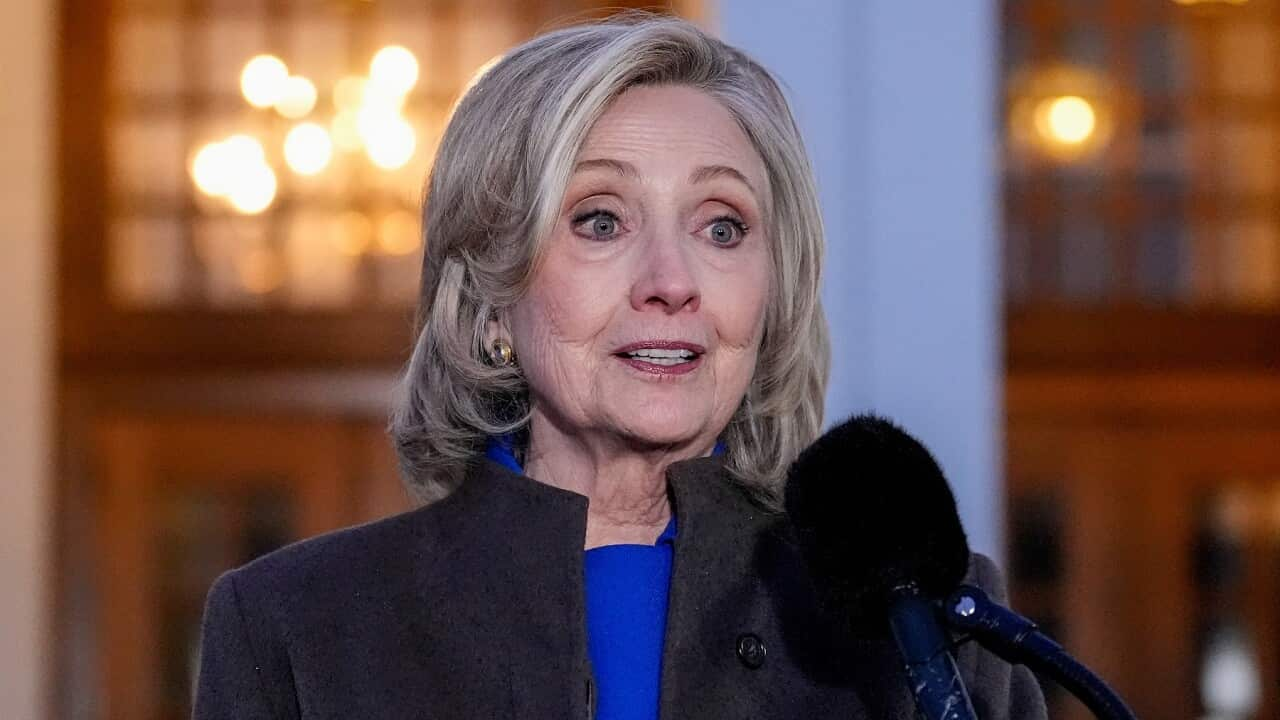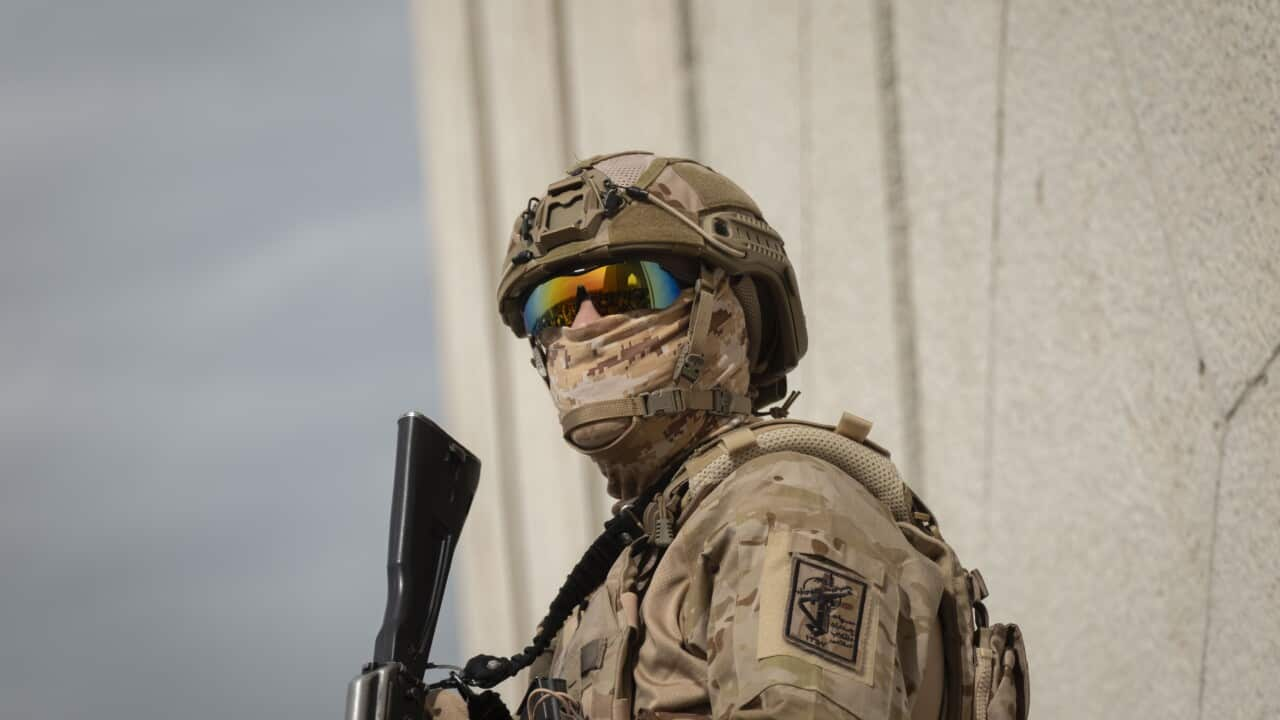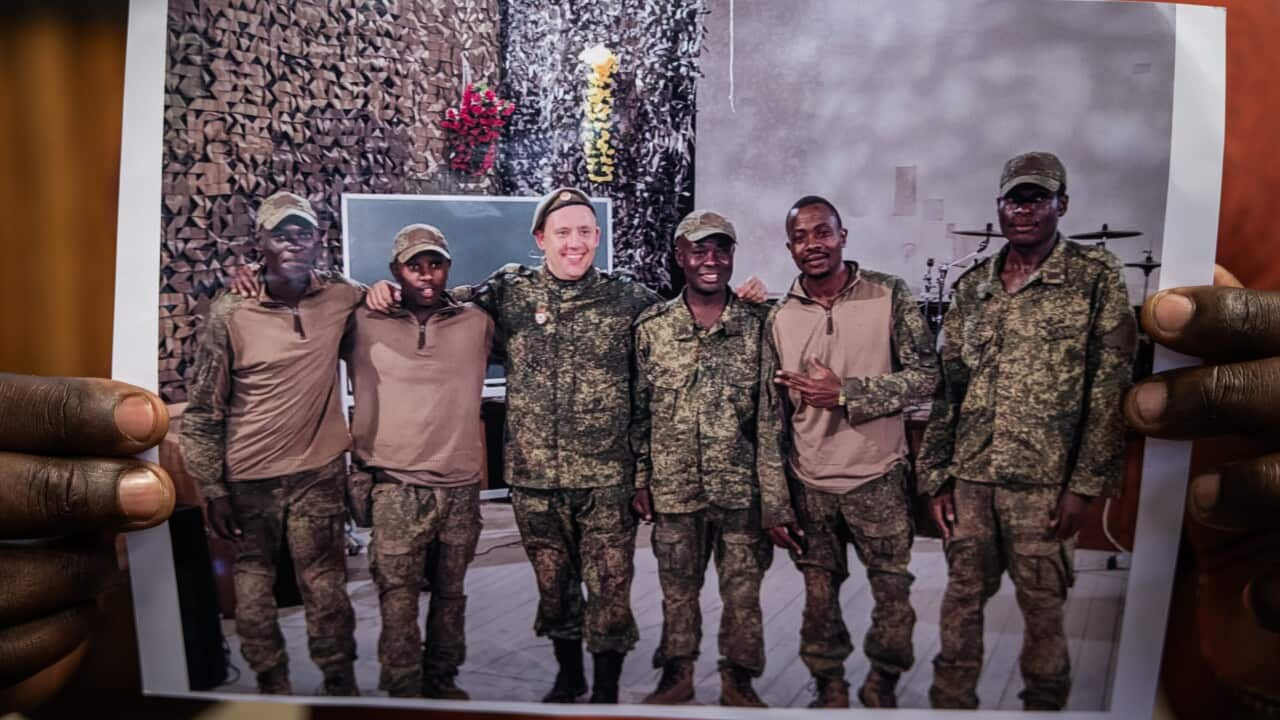The United States has conducted its fifth round of strikes against Houthi targets in Yemen.
US President Joe Biden has admitted the actions have failed to stop the Houthi attacks on ships in the Red Sea, a vital route for 15 percent of global seaborne trade.
Pentagon spokesperson Sabrina Singh insists the US is not at war with the Houthis, adding that the US strikes are about self-defence and protecting global trade.
Leena Abdul-Khaliq has been studying the Houthis and Yemeni politics as a PhD candidate and academic at Curtin University.
She spoke to Biwa Kwan about the strategy behind the Houthis’ Red Sea attacks and what it could mean for conflict in the Middle East.
TRANSCRIPT
LEENA ABDUL-KHALIQ:
The Houthis have declared that US and UK vessels are fair game now. And a US vessel was actually attacked, although no one on board was harmed. It should be noted that there have been no civilian or any kind of deaths that happened from the Houthis attacks at any point. But the vessel was attacked and then it was able to flee from the borders. But there was a US vessel that was attacked on Monday.
So I think if anything, this is indicative that things will escalate and the Houthis have an intention to escalate things if need be. After all, they are a war-tested group, so it's not difficult. It's not unfamiliar territory.
BIWA KWAN:
When you say they're a war-tested group, what is the endgame of the Houthis here?
LEENA ABDUL-KHALIQ:
The Houthis have engaged in eight years of war prior, and that was a civil, also, some describe it as a proxy war because of the different foreign entities that were involved in backing different groups in the country. So they're involved in the Saudi and UAE-led coalition for a while now, before the ceasefire and then before the truce, and then before the peace talks as well. So they are war tested and they have been successful in really maintaining control over the capital city since 2015 and many of the northern highlines of the country, and now we know of the waters as well. So they definitely have that experience.
But now with the US and UK targeting on Friday, they've become more emboldened. And I think this is an opportunity for them as well to make some political gain that they're face-to-face with a global power, which gives them attention on an international platform, but also an opportunity to appeal to the masses on a humanitarian level and say, well, we're standing in solidarity with the Palestinians. And that appeals to domestic support as well, locally and regionally, but even internationally, that gives them a place and a platform.
BIWA KWAN:
And disentangling all the kind of relationships here. What about the Iran factor? This axis of resistance that's always mentioned and how the Houthis are backed by the Iranians. I'm also reading here now, there are developments, Iran striking targets in northern Iraq and Syria. What are your thoughts there about - we spoke about Houthis got their own domestic agenda - but about this Iran factor here.
LEENA ABDUL-KHALIQ:
So the Houthis are associated with Iran. They are Iran backed. They belong to the axis of resistance, which essentially is an axis that was created by Iran - a resistance axis, which has groups in Lebanon. It has groups in Syria and Iraq and the Houthis, for example in Yemen. I do think that it's important to distinguish that the Houthis kind of operate with an interesting level of autonomy as well.
And the proof of this is that they are kind of distinguished from the rest because the forces in Lebanon, including Hezbollah in Syria and Iraq were retaliated against quite quickly. The Houthis understand that they have a bit more leverage there - with the kind of economic pressure that they're creating in the Red Sea. So that delayed retaliation is proof of this kind of distinction as well.
BIWA KWAN:
Where do you see the tipping points lie? Because we've also heard a lot from Iran talking about red lines and at what point they'll enter the conflict. Where do you see the kind of next major tipping point?
LEENA ABDUL-KHALIQ:
Iran is denied its involvement, but we know that a lot of the proxies that have been engaging in these fronts are backed by Iran. Now, the challenge here is there's no really saying what the tipping point would be and how things will continue.
We do know though that these fronts are engaged because of what's happening in Gaza. And up until now we've got over almost 25,000 deaths of civilians and over 60,000 injured civilians and more than 70 per cent displaced. So those kind of realities are reflected in these fronts as well. So I do think that whatever happens and whatever Israel decides to do next will have a lot to do with what will unfold elsewhere in the region.
BIWA KWAN:
You said the domestic factor is quite strong and there is a sense of autonomy there. To what extent is there going to be coordination on this issue? There seems to be - we talk about the access of resistance - a clear set of alliances that are emerging when we talk about the Gaza conflict
LEENA ABDUL-KHALIQ:
For the Houthis, it's about really cementing themselves as a power in Yemen. They're obviously not recognised as a legitimate government. The internationally recognised government is in exile in Saudi Arabia and elsewhere as well.
And so they're really pushing for that legitimacy and perhaps using this as an opportunity to create some pressure points to really leverage their position in the future of peace talks and discussions and determining the future of Yemen and who gets to lead the country.
BIWA KWAN:
In some ways, maybe diffusing the situation in the Red Sea might require dealing with the civil war situation in Yemen, the domestic issues in Yemen?
LEENA ABDUL-KHALIQ:
To some extent, absolutely it would. And I think that's probably where we might start to see maybe some mediation happening from regional actors as well who have no desire, no interest in this conflict, sort of further expanding. So we know that the Saudis and the Emiratis would become really, it would be damaging for them if a war in Yemen were to begin again or to be reignited, especially if Yemen were to get bombed. So they have their own interests that really require for there to be stability in the region. And so for them, there's no interest in this war expanding and in the conflict expanding.
So we'll probably begin to see some mediation happening very soon. But I think de-escalation is what the US would want, is what it's allies would want. It's what the regional actors would also want, including the Saudis and the Emiratis.
For the Houthis though, like I said, they're war-tested and to them, they're really winning the kind of publicity war at the moment.













